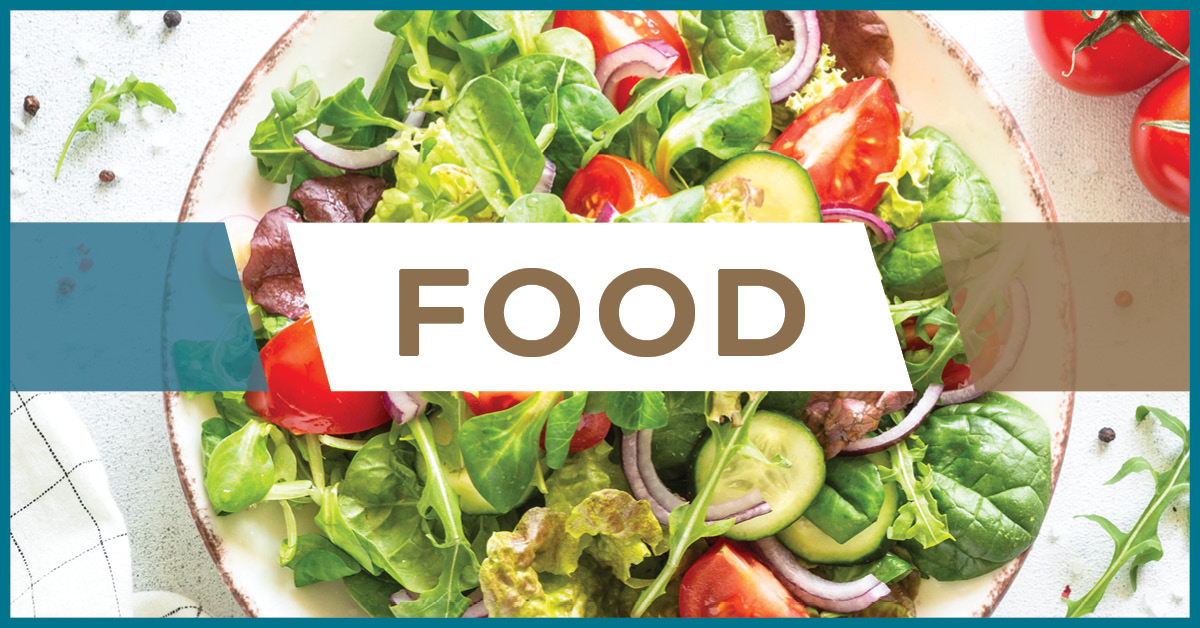
What is your relationship with food? How do you look at food? How does food make you feel? Many of us have asked ourselves these questions throughout our life and still don’t have the answers. Many of us have tried fad diets, spent thousands of dollars, and have gotten nowhere. We still weigh more than we want to and feel worse than we need to, but don’t know how to change it.
Food can be the cause of many diseases within our bodies. Many of us have experienced symptoms like bloating, cramping, foggy brain, joint pains and skin issues after we eat. This is our body’s way of saying “this is not the food for us” or “there could be something wrong with this food.” But food can also heal many things if eaten properly.
Much of the food we eat these days is packed with ingredients that we can’t pronounce and that could take the paint off of an engine. Why is this sold to us? Why is this the food that the majority of us have to eat? I don’t have answers to these questions. But I do have the answers to what you should be putting into your body and I do know that certain foods are better for some people.
In my family medicine practice at Evoke 5 Medical Center, we use testing to determine specifically what foods you might be intolerant to and also genetically what helps your body run optimally. This type of testing takes the guesswork away so you can avoid fad diets and follow a diet that is tailored to helping you achieve your own unique, optimal well-being. This is so important, because in my years as a family medicine doctor, I have seen that if you know what is best for your individual body, you are far less likely to deviate from that lifestyle direction.
The testing results include things like how your body reacts to fasting, how your body breaks down carbohydrates/proteins/fat, if your body is best with the carnivore and ketogenic diet, recommended servings of vegetables a day if you are a vegan, how you react to grain and gluten, what types of diets are best to help you build strength and lose weight, and how you absorb minerals/vitamins.
Genetically, most people do very well on the Mediterranean diet, which is the most well-researched diet. It is made of low-inflammatory foods that contain a wide variety of nutrients. It is full of vegetables, fruits, lean meats and healthy fats. The majority of people should consume a healthy amount of fats, specifically from sources like nuts, avocados and olives. While most people will do well eating this way, certain genes suggest whether or not you can tolerate extra fats and carbohydrates. Food testing and genetic testing will help us gain that understanding.
Other diets that may be identified as being the best for a specific individual through testing include:
- Fasting
- Paleo Diet
- Carnivore diet
- Ketogenic diet
- Vegetarian diet
- Vegan diet
- Whole30 diet
It’s important to note that while genetics play a major role in the development of disease, dietary and lifestyle factors can greatly enhance or reduce your risk of chronic health conditions.
When I was growing up wrestling, food was a love of mine and something that I thought about almost all the time – but it was also an enemy of mine. Wrestlers know what I’m talking about: You go through days of fasting while exercising and practicing at high intensity, all while still focusing in school and maintaining good grades. This, at times, was very unhealthy for most wrestlers partially because we were told to eat the completely wrong foods, believing they were best for our bodies. I would go on rollercoasters of gaining 20 pounds on a weekend and then having to spend the rest of the week cutting weight. This can take a toll on many of your internal organs.
I learned that food doesn’t have to be an enemy. As I became older and got further into my medical studies, I learned more about how food causes inflammation in your body – but also can reduce inflammation. I realized that I used to do it all wrong.
Through testing like I do with my patients, I found genetically that my body does well with a Mediterranean/Paleo diet. I followed a ketogenic diet for months, with no calorie restricting, and maintained a weight similar to what I was wrestling at in college, but feeling much stronger and healthier. Consuming the proper calories daily and maintaining a healthy weight with diet and exercise was what I should’ve been doing even when I was younger. This is why, at Evoke 5, I like to educate adolescents about how important food is to the body, how food is changing (for the worse), and what we can do to make healthy food choices.
While I wish I had known what I do now when I was younger, I also know it’s never too late. No matter how much we weigh, how sick or tired we feel, or how many fad diets we’ve failed at, it is possible to determine the optimal diet for each one of us. It is possible for food to heal – not hurt – us. And it is possible to look and feel the way we want to.
